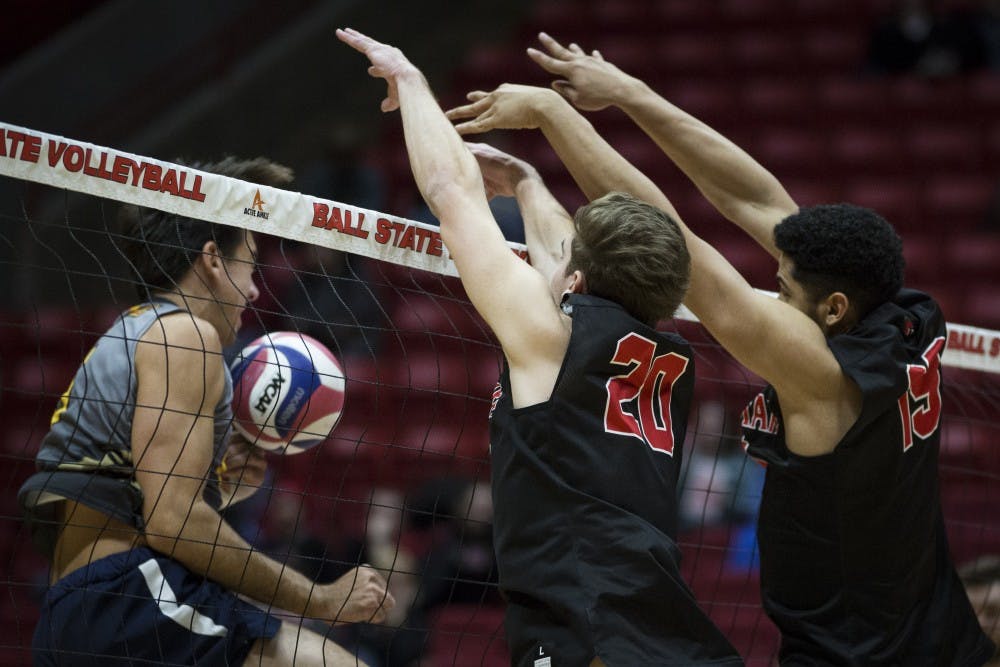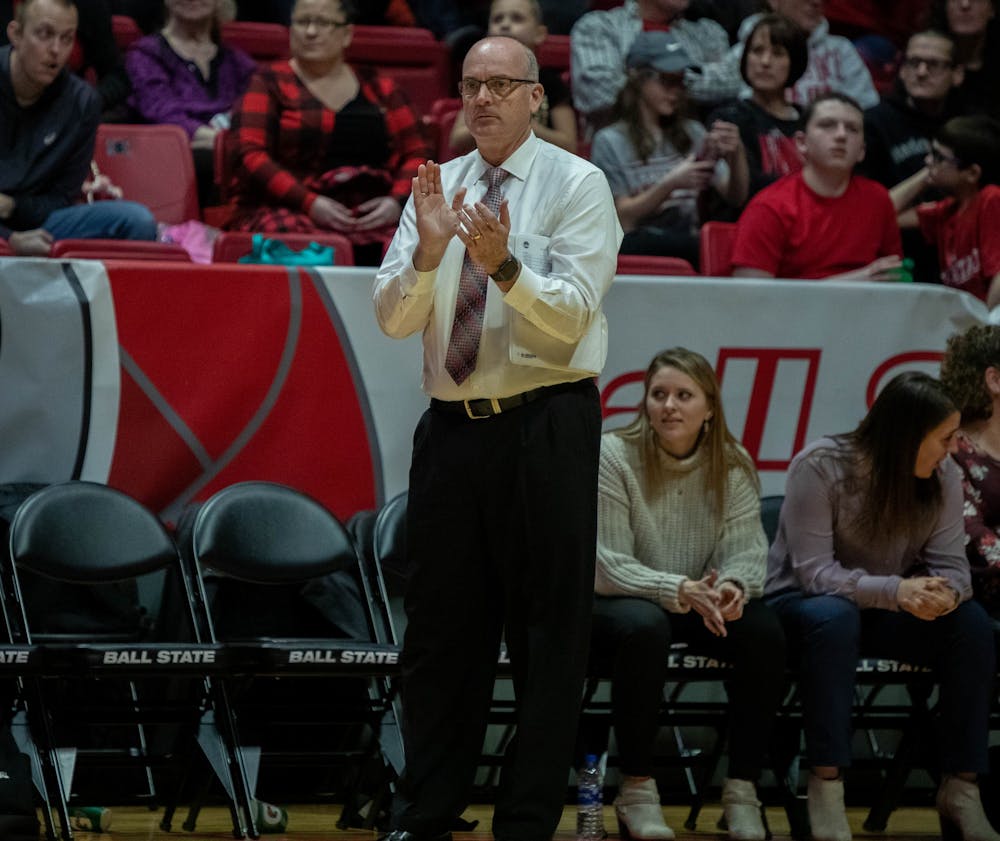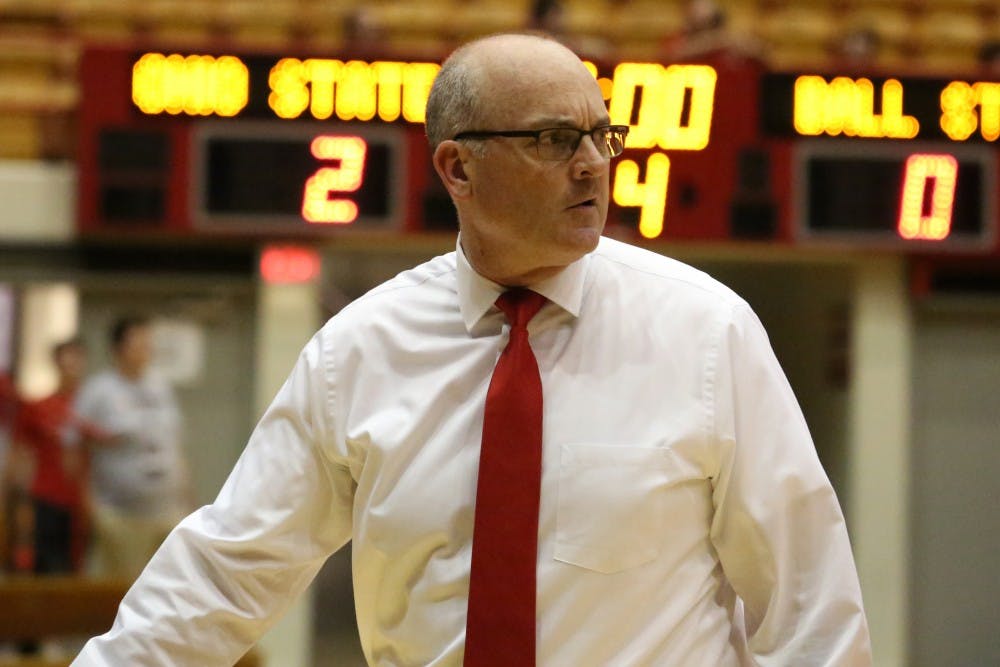When most people come to college, the simple act of talking to somebody can be daunting. For former Ball State Men’s Volleyball player Lem Turner, this action was magnified.
Not only did Turner have to adjust to a new lifestyle in college while simultaneously acclimating himself to a new volleyball team, but he also had to face a long-lasting issue beyond the court as one of the only African Americans in the program.
Racial insensitivity was the problem. In 2015, head coach Joel Walton used a derogatory term during a team meeting to describe musical lyrics he didn’t want to hear from his players. Other issues included players saying the word at parties.
It was difficult for Turner to muster the courage to speak out to his coaches and the public about the situation until after his freshman season.
“There’s definitely a hierarchy of, ‘You’re a freshman’ at least at that time,” Turner said. “You have one assistant coach that’s literally like a hothead, and you can never know if he’s going to be screaming at you or your best friend. That’s really unstable for a freshman to wrap their head around. The other assistant coach is completely indifferent, and unless you’re a starter or player, you don’t matter. That was probably the biggest thing of why it was so hard to speak out — I couldn’t necessarily find a route to take.”
It wasn’t until the end-of-season meeting with the coaches where Turner spoke up about his concerns. This led to meetings with higher-ups in the athletics department followed by Turner gathering his teammates and expressing his feelings to them.

Junior outside hitter David Siebum and red shirted sophomore middle attacker Lem Turner pushes a kill back over the net against a Emmanuel Lions attacker, Jan. 6, at John E. Worthen Arena. Ball State swept the Lions, in three straight sets, 16-25, 15-25, 12-25. Grace Hollars, DN
Turner thought this would spark change within the program, but the complete opposite happened, and it was as if nothing had occurred.
“Everyone left to go home,” Turner said. “I was assuming at the beginning of sophomore year there would be consequences — racial sensitivity training, whatever — but no. That didn’t happen. Very few teammates apologized. It didn’t really seem like people regretted their actions. I was like, ‘Man, I’m just trying to go through the school year again, and these so-called teammates are just brushing this off.’”
Walton released a statement Oct. 1, 2020, apologizing for his comments and the environment he created. He added that he will work to learn and lead the program in a more respectful way moving forward.
“As the leader of our program, it is my responsibility to ensure that all of our student-athletes feel respected and the environment allows everyone involved with the program to feel included,” Walton said in the statement. “That has not always been the case, and for that, I am sorry.”
Ball State released a statement the same day explaining its commitment to diversity and inclusion in both the university as a whole and the athletic department.
“We insist on and believe in a culture of respect for every member of our campus community,” the statement said. “If a matter occurs where a student has experienced anything less than an excellent experience for which we are known, we take these matters seriously and will investigate them appropriately.”
In response to these statements, Turner said he wanted to see more from the university. He emphasized that change was not met, but change is still attainable if the correct actions are taken. He suggested more policies be put in place and all coaches go through racial sensitivity and equity training.
“That was essentially empty-handed,” Turner said. “The organization does not promote change from the bottom up … This is not change. This is performative.”
Turner made it clear that he doesn’t consider anyone in the program to be a bad person and that he is still close with some of them. Matt Walsh and Jake Romano, who played with Turner at Ball State and who Turner still considers good friends, are two people who have not been afraid to stand up and speak out about the situation.
Romano was roommates with Turner and agreed that little was done by other teammates to make sure Turner was OK.
“I wish I would have had the courage to say something earlier,” Romano said. “There were things happening that I clearly knew were wrong, and I should’ve stepped up in that moment. In hindsight, it’s 20/20, and you’d love to do things the right way all the time.”

Walsh said he believes people were more careful with the words they used but did not believe it sparked the change Turner was hoping for.
Walsh said he and Turner had a fun rivalry on the court, which helped them grow as players. He said he wishes he was more aware of how certain things made Turner feel and would’ve been more proactive with it.
“I wish I would have known how much it affected him,” Walsh said. “Off of the court, we were friends and would hang out all of the time. I never noticed how affected he got by it.”
While Turner said he knew Walsh and Romano had his back, he could not gauge the rest of his teammates and if they truly cared about what he said to them and the issue at hand.
“The second level was guys who I knew supported me but were also not willing to say something in the locker room or say, ‘Hey, that’s not the right thing to do,’” Turner said. “There were four or five guys who I’d consider were in that group, and then the rest were just indifferent and didn’t really give a shit.”
These issues weren’t just pertaining to Walton or his teammates. Turner criticized the program as a whole for its lack of awareness on race issues and anything regarding the personal lives of the players. It even got to the point where Turner almost quit his senior year.
“Everyone has to learn, and this is including the racially insensitive stuff,” Turner said. “But then again, there would always be a moment when I’d be like, ‘Why don’t you care?’ I really don’t think the coaches could tell you how many siblings [the players] had. They couldn’t tell you what their major was ... The people don’t care about you. They care about winning.”
Moving forward, Turner said, the men’s volleyball program and the university need to hold those who use any words of discrimination or aren’t inclusive accountable.
“There needs to be an outlet that clearly states there will be consequences for players involved in these situations,” Turner said. “There needs to be a clear-cut, anti-discrimination policy in the Ball State athletic department. If I hadn’t spoken out, who knows how much worse it would’ve gotten?”
Contact Ian Hansen with comments at imhansen@bsu.edu or on Twitter @ianh_2. Contact Connor Smith with comments at cnsmith@bsu.edu or on Twitter @cnsmith_19.





